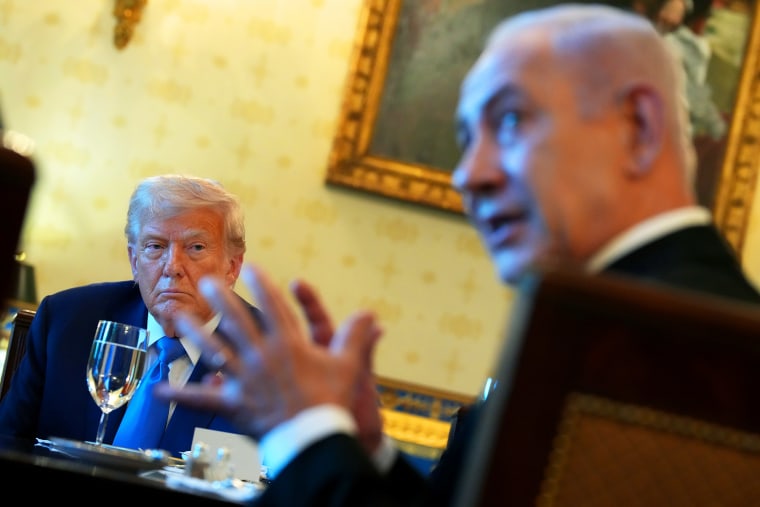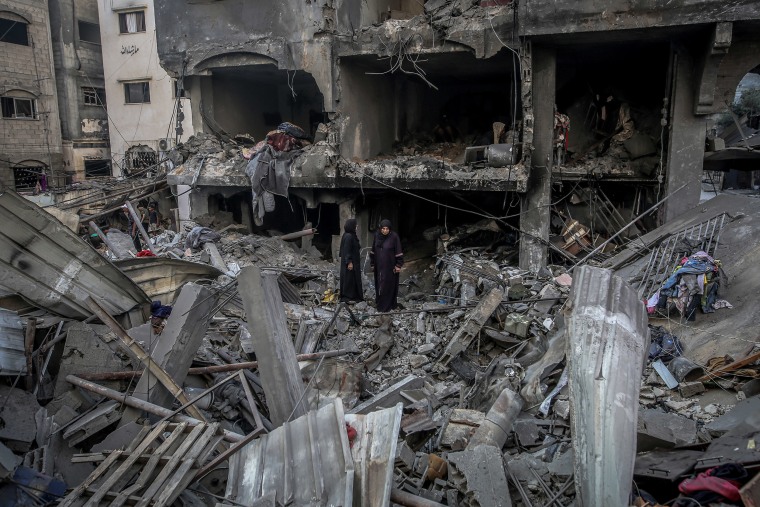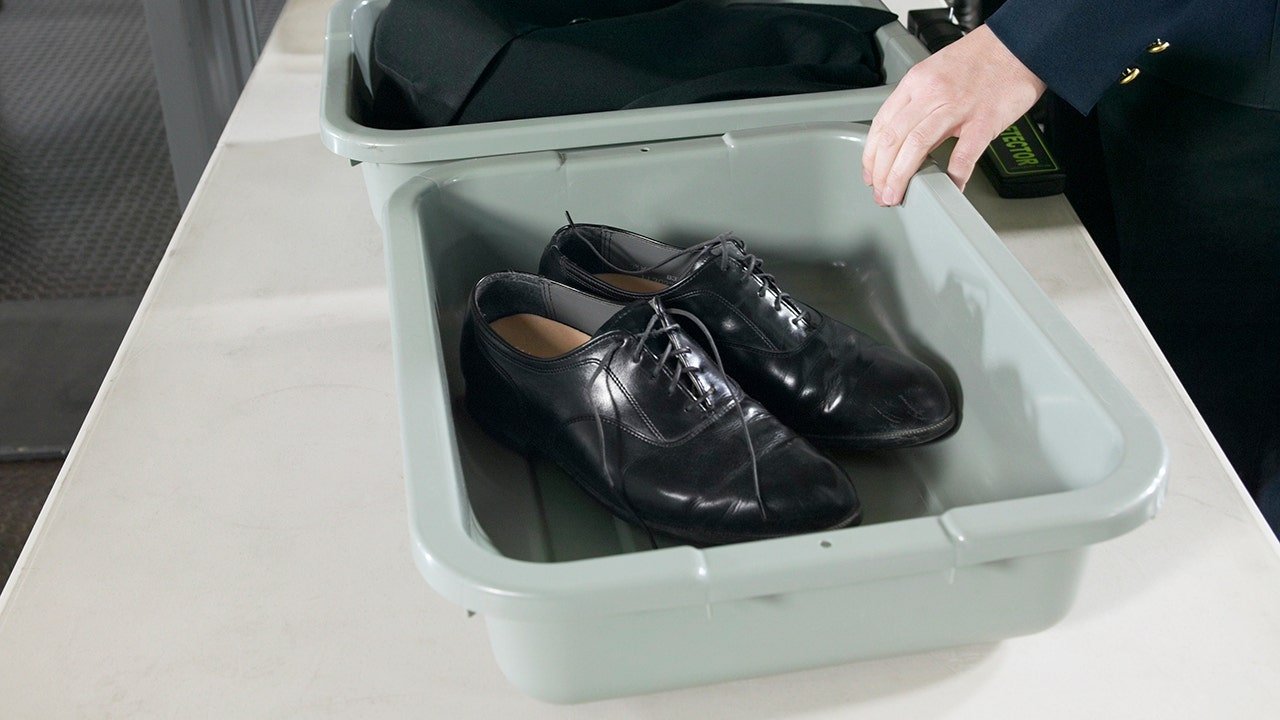President Donald Trump and Israeli Prime Minister Benjamin Netanyahu kept alive the idea of relocating people from the shattered Gaza Strip on Monday, despite widespread condemnation from close allies, the United Nations and rights groups, as well as the Palestinians themselves.
Trump said during their White House meeting Monday that there was “great cooperation” from countries surrounding Israel to take in Palestinians, while Netanyahu said they were “getting close to finding several countries” willing to do so.
Neither provided details of this idea, which Arab nations such as Jordan and Egypt have previously rejected and condemned as forced displacement, which is illegal under international law.
Trump made the surprise announcement in February that he planned for the United States to take ownership of the Gaza Strip and develop it into “the Riviera of the Middle East,” before later walking back those plans citing a lack of regional support. Asked about his progress on this front Monday, he threw the question to Netanyahu sitting across from him.
“It’s called free choice. You know, if people want to stay, they can stay, but if they want to leave, they should be able to leave,” Netanyahu said. “It shouldn’t be a prison. It should be an open place, and give people a free choice.”
Israel and Egypt maintained a blockade on Gaza since Hamas militants took over the enclave in 2007. Since the most recent war began in 2023, it has been difficult, if not impossible, for people to leave, and food and aid to enter the besieged territory.
Many Palestinians, meanwhile, see the suggestion that even some of Gaza’s more than 2 million people be moved as dehumanizing, conjuring painful memories of the “Nakba,” or “catastrophe,” the forced removal of an estimated 750,000 Palestinians from their homes when Israel was founded in 1948.
Israel occupied Gaza from 1967 to 2005, at which point it forcibly removed Jewish settlers from the area.
Today, the resettlement of Palestinians has gone from a fringe idea supported mainly by Netanyahu’s far-right nationalist coalition partners to something openly entertained by the White House. Some Israeli settler leaders have called for the re-occupation of the territory.
The idea was condemned by Palestinian leaders.
“When they say it would be voluntary, that is so misleading, because when you bomb people every day, when you starve people for 126 days, who can call that a voluntary decision?” Mustafa Barghouti, a senior Palestinian politician and head of the Palestinian National Initiative political party, told NBC News on Tuesday.
In January, when this idea was first floated by Trump, Washington’s allies in the Middle East rejected this idea.
Egyptian President Abdel-Fattah el-Sisi called the idea an “injustice” that would impact his country’s security. The same day, Jordan’s King Abdullah II stressed “the need to keep the Palestinians on their land and to guarantee their legitimate rights.” And a statement from the Saudi government said it was an “infringement on the legitimate rights of the Palestinian people.”
In February, U.N. spokesman Stéphane Dujarric said that “any forced displacement of people is tantamount to ethnic cleansing.” While Michael Becker, an assistant professor of international human rights law at Trinity College Dublin said, “President Trump’s proposal amounts to a blatant rejection of the core tenets of international law that have operated since at least the end of World War II.”
NBC News has contacted the White House for comment on these criticisms.

Resettlement was just one of the topics discussed by Trump and Netanyahu, who, as the latest White House visitor to lavish his host with a flattering accolade, presented the American president with a nomination for the Nobel Peace Prize. While winning the award has been a longtime ambition of the president, nominations like this one are not seen to have an impact on the Nobel Committee’s eventual decisions.
Trump was also optimistic about a ceasefire between Israel and Hamas over the war in Gaza, saying things were “going along very well” and there was no “hold-up.”
Hamas says it responded to Washington’s ceasefire plan with a “positive spirit,” and Israel has also agreed “to the necessary conditions to finalize” a 60-day truce, according to Trump.
But the two sides appear deadlocked over whether this deal would lead to a permanent end to the fighting, rather than just a temporary reprieve. Netanyahu says he wants the full elimination of Hamas, his primary war goal.

More than 56,000 people have been killed and thousands more seriously injured since Israel launched its military offensive in the Gaza Strip following the Hamas-led Oct. 7, 2023, terrorist attacks, according to health officials in the enclave. About 1,200 people were killed and around 250 taken hostage that day in Israel.
#TrumpNetanyahu #meeting #revives #bitterly #opposed #plan #relocate #Palestinians



